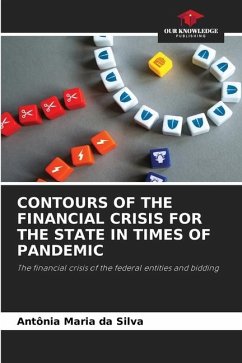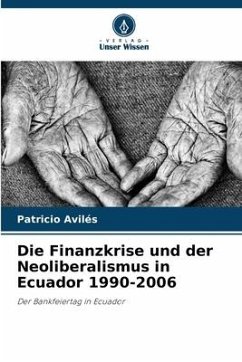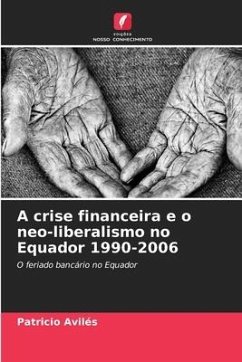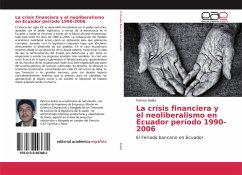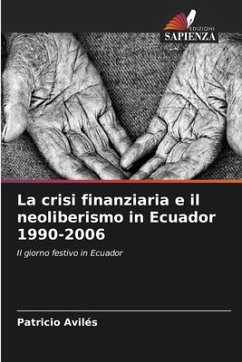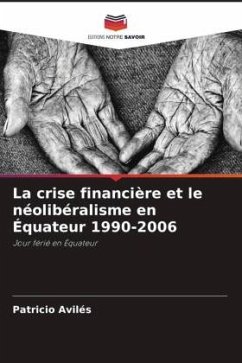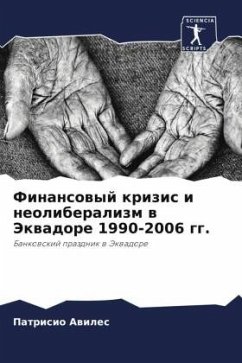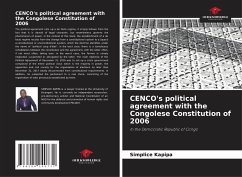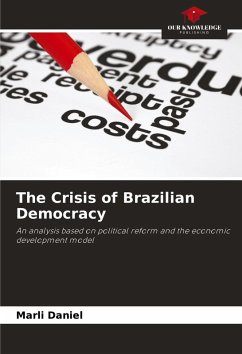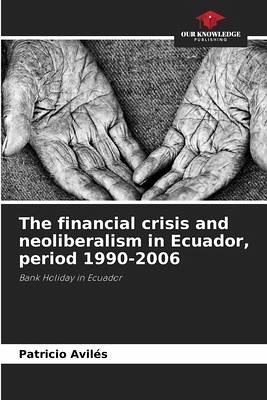
The financial crisis and neoliberalism in Ecuador, period 1990-2006
Bank Holiday in Ecuador
Versandkostenfrei!
Versandfertig in 6-10 Tagen
36,99 €
inkl. MwSt.

PAYBACK Punkte
18 °P sammeln!
The robbery of the twentieth century was initially developed in the executive branch, assisted by the legislative branch, at the beginning of democracy in Ecuador and then materialized through the Ecuadorian private banking system, all this between 1980 and 2006. The establishment of the neoliberal economic model acted as a trigger for corrupt governments, together with the legislature, to promote laws that directly affected the development of their people. In the Ecuadorian case we have from the sucretization of the foreign debt, to creating the idea that the administration of the State was d...
The robbery of the twentieth century was initially developed in the executive branch, assisted by the legislative branch, at the beginning of democracy in Ecuador and then materialized through the Ecuadorian private banking system, all this between 1980 and 2006. The establishment of the neoliberal economic model acted as a trigger for corrupt governments, together with the legislature, to promote laws that directly affected the development of their people. In the Ecuadorian case we have from the sucretization of the foreign debt, to creating the idea that the administration of the State was defective and therefore began to sell the most profitable state-owned companies. They created a fictitious crisis in the banking system and generated the national holiday, seizing the resources of the Ecuadorian people, all very well organized by the political system of right-wing sectors. The Ecuadorian economy was dollarized, converting one dollar for every 25 thousand sucres, which favoredthe big defaulters, since their debts dropped considerably, while the pension for retirees, social security contributions and salaries were drastically reduced, benefiting the banks.



